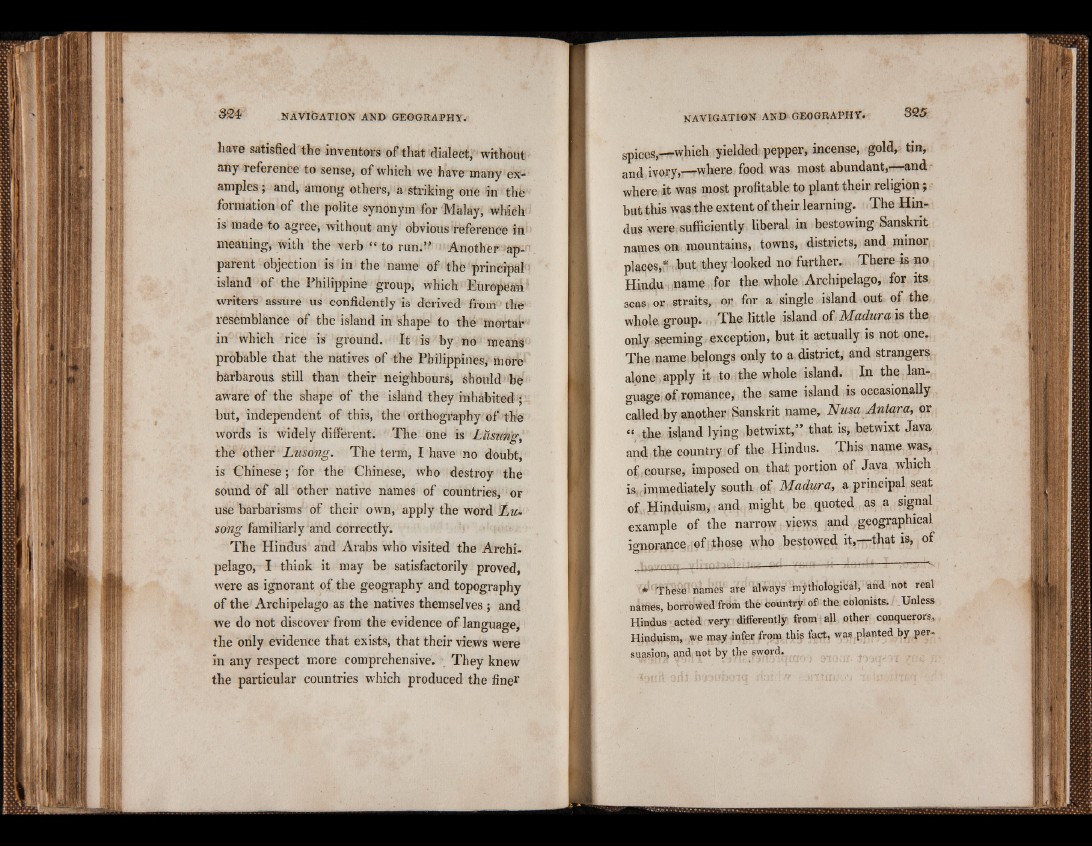
have satisfied the inventors of that dialect, without
any reference to sense, of which we have many examples;
and, among others, a striking one in the
formation of the polite synonym for Malay, which
is made to agree, without any obvious reference in
meaning, with the verb “ to run.” Another apparent
objection is in the name of the principal
island of the Philippine group, which European
writers assure us confidently is derived from'the
resemblance of the island in shape to the mortar
in which rice is ground. It is by no means
probable that the natives of the Philippines, more
barbarous still than their neighbours, should be
aware of the shape of the island they inhabited ;
but, independent of this, the orthography of the
words is widely different. The one is Lasting,
the other Lusong. The term, I have no doubt,
is Chinese ; for the Chinese, who destroy the
sound of all other native names of countries* or
use barbarisms of their own, apply the word 'Lusong
familiarly and correctly.
The Hindus and Arabs who visited the Archipelago,
I think it may be satisfactorily proved,
were as ignorant of the geography and topography
of the Archipelago as the natives themselves ; and
we do not discover from the evidence of language,
the only évidence that exists, that their views were
in any respect more comprehensive. They knew
the particular countries which produced the fine*1
spices,—which yielded pepper, incense, gold, tin,
and ivory,—-where food was most abundant,—and
where it was most profitable to plant their religion;
but this was the extent of their learning. The Hindus
were sufficiently liberal in bestowing Sanskrit
names on mountains, towns, districts, and minor,
places,* but they looked no further. There rs no
Hindu name for the whole Archipelago, for its
seas* or straits, or for a single island out of the
whole group. The little island of JSLadura is the.
only seeming exception, but it actually is not one.,
The name belongs only to a district, find strangers
alone apply it to the whole island. In the language
of romance, the same island is occasionally
called by another Sanskrit name, Nusa Antara, or
“ the island lying betwixt,” that is, betwixt Java
and the country of the Hindus. This name was,
of course, imposed on that portion of Java which
is, immediately south of Madura, a principal seat
of Hinduism, and might be quoted as a signal
example of the narrow views and geographical
ionorance of those who bestowed b - it,—that is, of
* These names are always mythological, and not real
names, borrowed from the country of: the colonists. Unless
Hindus acted very differently from all other conquerors,
Hinduism, we may infer from this fact, was planted by persuasion,
and not by the sword.